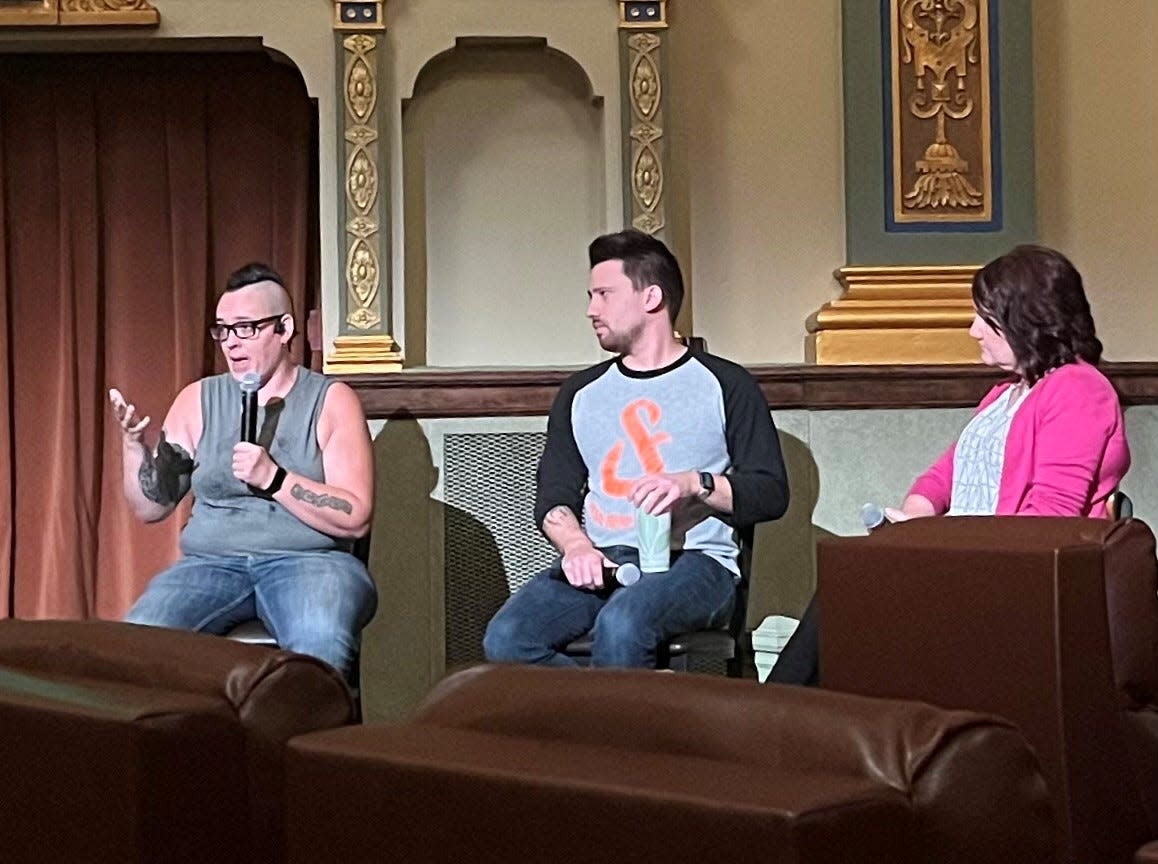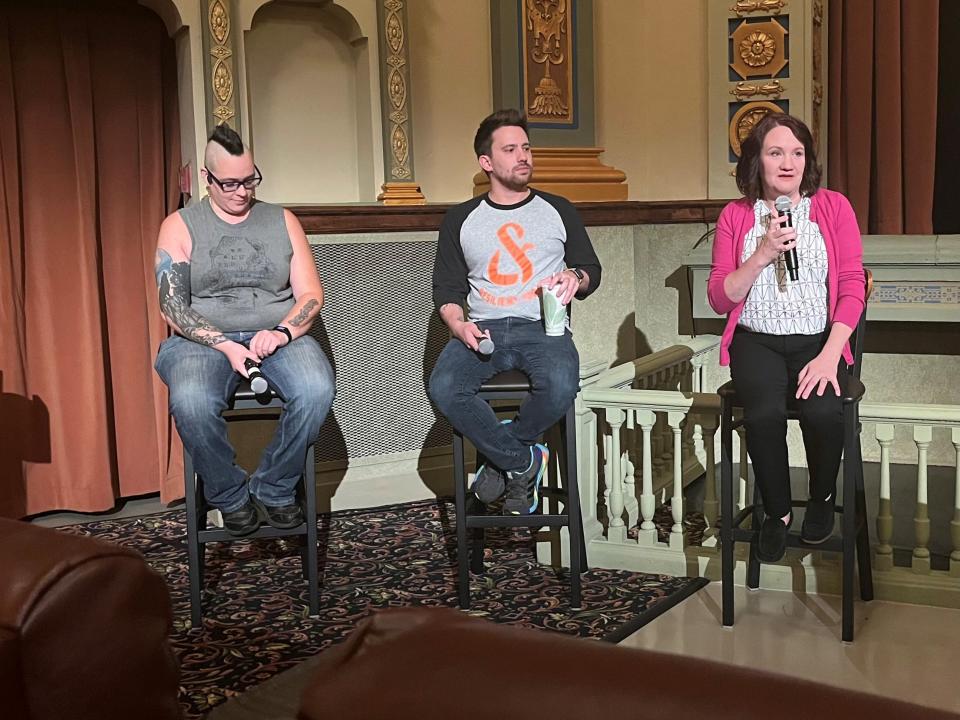Sioux Falls residents share traumatic experiences with anti-LGBTQ+ 'conversion therapy'

Boots Among Trees and Cody Ingle, as openly LGBTQ+ Sioux Falls residents, have something in common: They were both subjected to conversion therapy at a young age.
Conversion therapy is a pseudoscientific practice of attempting to change an individual’s sexual orientation to heterosexual, or their gender to cisgender, by way of psychological, physical or spiritual intervention. And it’s legal in South Dakota.
The practice has been denounced by dozens of major medical associations, including the American Psychiatric Association, American Psychological Association, American Academy of Pediatrics, American Medical Association, World Health Organization and more. Only 20 states, D.C. and Puerto Rico have protected LGBTQ+ youth from conversion therapy.
Both Boots and Ingle shared their stories of undergoing conversion therapy before a screening of “Pray Away,” a documentary exploring the ills of conversion therapy, Tuesday night at the State Theatre in downtown. The event was sponsored by the Transformation Project, the Trevor Project and Equality South Dakota.
More: ‘Called to serve': Why these gay, nonbinary, Two Spirit faith leaders stayed to preach in SD
Susan Williams, executive director of the Transformation Project, thanked both Boots and Ingle for sharing their stories.
“Thank you for putting your story out there, so we can be aware of how damaging (conversion therapy) really is, and how much it affects people, and how much we need to fight for this to stop for good,” Williams said.
Bible therapy can't 'cure' being gay
Boots was outed during school one day in eighth grade at age 13 as gay, they said, which led to a call from the school’s principal to their parents, who were Jehovah’s Witness leaders.
Their parents made them take IQ and behavioral tests, stay at Sioux Valley Behavioral Health, and then stay at the Human Services Center in Yankton.
Boots was told by their parents and mental health professionals that they were suicidal.
“I was, but it was, because of the way I was treated, not because of my gay,” they said.
During their mental health stays, they were matched with a certified therapist who they compared to the movie “But I’m A Cheerleader,” and who tried to figure out if Boots had a trauma “that made me that way.”
“I spent a few years in the upper 2000’s in a state facility trying to ‘cure my gay,’” Boots said.

When Boots’ family didn’t see the change they wanted to see in their child by way of “Bible therapy” with other Jehovah’s Witnesses after three years, they kicked Boots out at 16 years old.
More: Sioux Falls Pride holds visibility gathering as part of adjusted Pride Month schedule
It took Boots three years of cognitive behavioral therapy and exposure therapy, and several mental health diagnoses, to stop experiencing dissociative episodes. But, they still face triggers and anxiety, and ultimately said they couldn’t bring themselves to watch “Pray Away.”
“It’s just too close to home for me,” they said, while asking the audience to remember their strength during the screening and open their hearts to the empathy of the struggles those featured in the documentary.
'It affects individuals at such a traumatizing level'
Ingle grew up in Kansas in an Assemblies of God church community where his conversion therapy experience started at 18, continued through college and ended when he resigned from a local church in 2016 at age 24.
He resigned from that local church after they outed him to the congregation in a letter without his consent.
His time starting in conversion therapy as a young adult was like “quasi-counseling” intense prayer sessions, he said, after disclosing to a church leader at age 18 that he was gay.
Three people sat in a room with Ingle: one who prayed constantly, another who sensed “demonic entities” around him and another. They told him his homosexuality was a demon he allowed in his life.
When he went to college, he sought a degree in youth ministries and went to another version of therapy that his private university offered in a group setting, which was meant to rid the students of same sex attraction.
More: Lesbian activist mourns death of wife, reflects on fight for marriage equality in South Dakota
Ingle moved in 2014 to Sioux Falls to work at a local church, which had a similar style of conversion therapy to what he attended at age 18. He attended two rounds of that therapy, while serving as a local pastor, and created a testimony video telling the church audience how the “intense sessions” helped him feel straight and he “finally cast the demon out.”
After later leaving the church, though, “actual therapy with an actual counselor” has helped Ingle work through that trauma he experienced in conversion therapy, he said.
Conversion therapy “really needs to stop, because it affects individuals at such a traumatizing level,” he said. “I know for me, (there’s a) consistent and constant battle in my mind of, ‘This is who I really am.’ … This is just a practice that we really need to be able to help protect individuals from having to go through it.”
The National Suicide Prevention Lifeline is a hotline for those in crisis. To speak with a certified listener, call 988. The Trevor Project is also the world’s largest suicide prevention and crisis intervention organization for LGBTQ+ youth. For help, call 1-866-488-7386.
This article originally appeared on Sioux Falls Argus Leader: Anti-LGBTQ+ conversion therapy still legal in South Dakota

